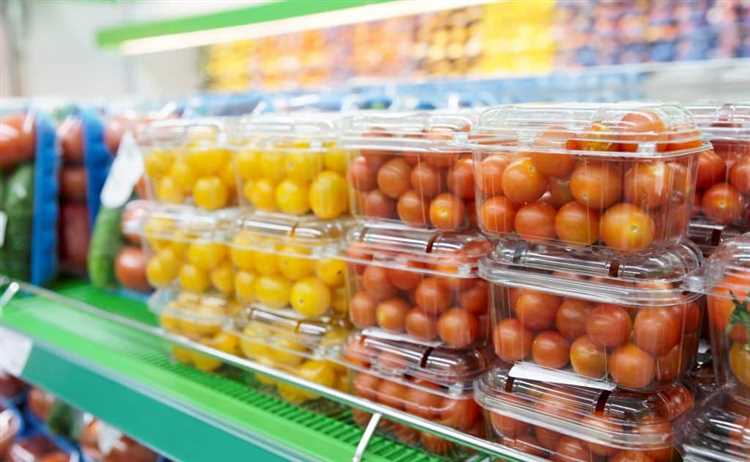
Plastic pollution has become an urgent global problem, and one of the main culprits is single-use plastic packaging. When we go to the grocery store, it’s hard to avoid plastic altogether, but there are many steps we can take to reduce our plastic consumption. By making small changes in our shopping habits, we can make a big difference in reducing plastic waste and protecting our environment.
Bring Your Own Bags: One of the easiest and most effective ways to reduce plastic waste is to bring your own reusable bags when you go shopping. Keep a few fabric or canvas bags in your car or by your front door, so you never forget them. These bags are not only more eco-friendly than plastic bags, but they are also sturdier and can carry more groceries.
Avoid Plastic Produce Bags: Another major source of plastic waste in grocery stores is the small plastic bags used to package fruits and vegetables. Instead of using these bags, try placing loose produce directly into your reusable bags. If you prefer to keep your produce separated, consider using reusable mesh produce bags, which are lightweight and can be washed easily.
Buy in Bulk: Buying in bulk is not only cost-effective but also reduces plastic packaging waste. Look for stores that offer bulk bins where you can bring your own containers and fill them up with grains, nuts, and other dry goods. This way, you can avoid the unnecessary plastic packaging that often comes with pre-packaged items.
Choose Fresh Over Pre-Packaged: When possible, choose fresh foods over pre-packaged ones. Many packaged foods come in plastic containers, which are difficult to recycle and often end up in landfills or oceans. Instead, opt for loose fruits and vegetables, which you can wash and store in your own reusable containers at home.
Bring Your Own Water Bottle: Disposable plastic water bottles are a huge source of plastic waste. Invest in a good-quality reusable water bottle that you can refill and take with you wherever you go. Not only will you be reducing your plastic consumption, but you’ll also be saving money.
By taking these simple steps, we can all play a part in reducing plastic pollution. Small changes in our shopping habits can have a big impact on our environment, and help create a more sustainable future for generations to come.
- Choose Sustainable Alternatives
- Bring Your Own Bags
- 1. Invest in reusable bags
- 2. Keep your bags handy
- 3. Make a shopping list
- 4. Say no to plastic bags
- Use Reusable Produce Bags
- Avoid Pre-Packaged Foods
- Shop in Bulk
- Benefits of shopping in bulk
- Tips for shopping in bulk
- Reduce Single-Use Plastic
- 1. Bring your own reusable bags
- 2. Say no to plastic produce bags
- 3. Choose products with minimal packaging
- 4. Use refillable containers
- 5. Avoid buying bottled water
- Question-answer:
- Why is it important to avoid plastic in the grocery store?
- What are some alternatives to plastic in the grocery store?
- Are there any benefits to avoiding plastic in the grocery store?
- What are some tips for reducing plastic use in the grocery store?
- What challenges might people face when trying to avoid plastic in the grocery store?
- Why is it important to avoid plastic in the grocery store?
- What are some alternatives to plastic bags in the grocery store?
Choose Sustainable Alternatives
Choosing sustainable alternatives to plastic in the grocery store is a great way to reduce your environmental impact. Here are some tips and tricks:
- Bring your own reusable bags: Instead of using plastic bags provided by the store, bring your own cloth or canvas bags. These bags are durable and can be used multiple times.
- Use reusable produce bags: Instead of using the thin plastic bags for fruits and vegetables, opt for reusable mesh produce bags. They are lightweight and can be washed and reused.
- Choose glass jars and containers: Look for products that come in glass jars or containers instead of plastic. Glass is a more sustainable option as it can be recycled over and over again.
- Buy in bulk: Bulk bins are a great way to reduce packaging waste. Bring your own reusable containers and bags to fill up on items like grains, nuts, and snacks.
- Avoid plastic water bottles: Invest in a reusable water bottle and fill it up at home or at water stations. This will not only save you money in the long run but will also reduce plastic waste.
- Choose paper or cardboard packaging: When given the choice, opt for products that are packaged in paper or cardboard instead of plastic. These materials are more easily recycled and biodegradable.
- Avoid single-use items: Try to avoid single-use items like plastic cutlery, straws, and coffee cups. Instead, bring your own reusable options or ask for alternative options at cafes and restaurants.
By making these small changes in your grocery shopping habits, you can make a big difference in reducing plastic waste and protecting the environment. Choose sustainable alternatives and encourage others to do the same!
Bring Your Own Bags
One of the easiest ways to avoid using plastic at the grocery store is to bring your own bags. Plastic bags are a major source of pollution and contribute to the growing waste problem in landfills and oceans. By bringing your own bags, you can help reduce the demand for plastic and minimize the environmental impact.
Here are some tips for bringing your own bags to the grocery store:
1. Invest in reusable bags
Invest in a set of reusable bags that you can take with you to the grocery store. Look for bags made from eco-friendly materials like organic cotton or recycled plastic. These bags are durable and can be used multiple times, reducing the need for single-use plastic bags.
2. Keep your bags handy
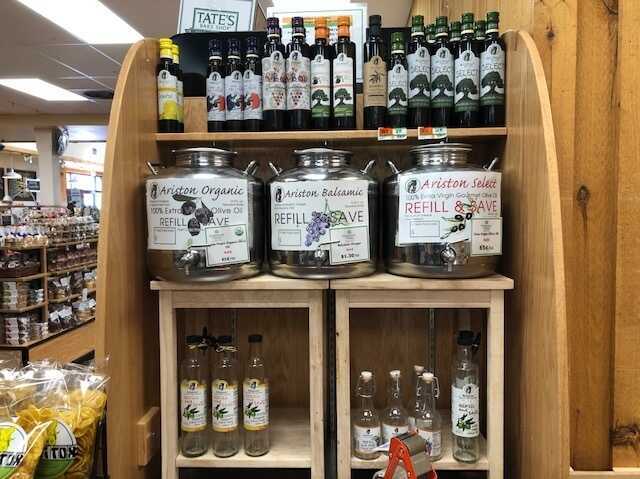
Keep your reusable bags in a convenient location, such as by the front door or in the trunk of your car. This way, you’ll always have them on hand when you need to go grocery shopping. It’s also helpful to keep a small foldable bag in your purse or backpack for those impromptu trips to the store.
3. Make a shopping list
Before heading to the grocery store, make a shopping list to help you stay organized and avoid impulse purchases. This will not only save you money but also help you estimate the number of bags you’ll need. Make sure to pack enough bags to carry all your groceries.
4. Say no to plastic bags
When you’re at the checkout counter, politely decline any plastic bags offered to you. Instead, ask the cashier to pack your groceries in your reusable bags. This simple step can make a big difference in reducing plastic waste.
By bringing your own bags to the grocery store, you can play an active role in reducing plastic pollution. Remember, every small change counts, and together, we can make a big impact!
Use Reusable Produce Bags
One of the easiest ways to minimize plastic waste in the grocery store is to use reusable produce bags instead of the disposable plastic bags provided. Reusable produce bags are typically made of lightweight, washable fabric or mesh material and are designed specifically for carrying fruits, vegetables, and other loose items.
By using reusable produce bags, you can significantly reduce the amount of plastic that ends up in landfills and oceans. These bags are not only eco-friendly but also durable, making them an excellent long-term investment. They can be easily washed and reused, eliminating the need for single-use plastic bags every time you go shopping.
Most reusable produce bags are designed with drawstring closures or durable handles, making them convenient to use and carry. They are available in various sizes, allowing you to choose the ones that are suitable for the types and quantities of produce you typically buy.
When you bring your reusable produce bags to the grocery store, simply use them in place of the plastic bags provided. You can separate different items into different bags or put all your produce in one large bag. To ensure accurate weighing and pricing at the checkout counter, consider using reusable bags with transparent mesh materials that allow cashiers to see what’s inside without needing to open them.
Not only do reusable produce bags help reduce plastic waste, but they also allow your fruits and vegetables to breathe better. Plastic bags can trap moisture and contribute to spoilage, but reusable produce bags allow for better airflow, extending the freshness and shelf life of your purchases.
| Benefits of Using Reusable Produce Bags: |
| 1. Minimize plastic waste |
| 2. Durable and long-lasting |
| 3. Washable and reusable |
| 4. Convenient to use and carry |
| 5. Available in various sizes |
| 6. Allow fruits and vegetables to breathe |
Make the switch to reusable produce bags and contribute to a cleaner, greener environment. By embracing this simple change, you can help reduce the amount of plastic pollution while still enjoying a convenient and hassle-free shopping experience.
Avoid Pre-Packaged Foods
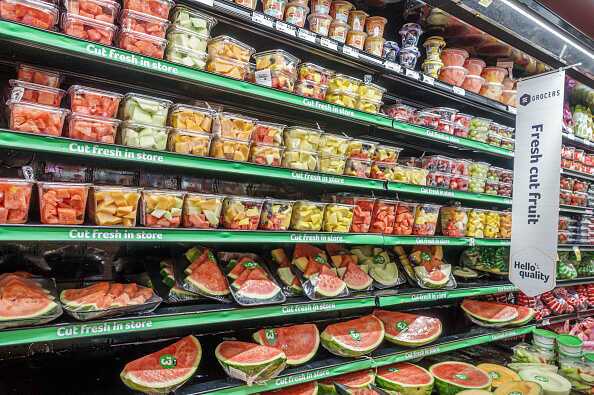
When trying to reduce your plastic waste in the grocery store, it’s important to avoid pre-packaged foods as much as possible. These foods often come in single-use plastic containers or wrappers, which contribute to the plastic waste problem.
Instead, opt for fresh produce that is sold loose or in bulk. Bring your own reusable produce bags to avoid using plastic bags for fruits and vegetables. This not only helps reduce plastic waste but also allows you to buy the exact amount you need, reducing food waste as well.
In addition, choose items that are packaged in paper, cardboard, or glass instead of plastic. Look for items such as pasta, rice, beans, and other dry goods that come in bulk bins or larger packaging options. By buying in bulk, you can also save money and reduce overall packaging waste.
Another great way to avoid pre-packaged foods is to make as much as you can from scratch. Instead of buying pre-made meals or snacks that come in plastic packaging, try making them at home using fresh ingredients. This way, you have full control over the packaging and can choose to use reusable containers.
Overall, avoiding pre-packaged foods is not only better for the environment but also for your health. Many pre-packaged foods contain additives, preservatives, and excessive amounts of salt, sugar, and unhealthy fats. By preparing your meals from scratch, you can ensure that you are consuming nutritious and wholesome foods.
So next time you’re grocery shopping, keep these tips in mind and strive to avoid pre-packaged foods as much as possible. Not only will you be reducing your plastic waste, but you’ll also be making healthier choices for yourself and the planet.
Shop in Bulk
One of the best ways to avoid plastic waste in the grocery store is to shop in bulk. By buying your food and household items in bulk, you can significantly reduce the amount of plastic packaging that ends up in landfills.
Benefits of shopping in bulk
Shopping in bulk has numerous benefits, both for the environment and for your wallet:
1. Reduces plastic waste: When you buy in bulk, you eliminate the need for individual packaging for each product. Instead, you can bring your own reusable containers and fill them up with the desired quantity of food or household items. This helps in decreasing the demand for single-use plastic packaging.
2. Saves money: Purchasing items in bulk often turns out to be cheaper than buying them in smaller quantities. By avoiding the cost of individual packaging, retailers can offer lower prices for bulk products. Plus, you can buy just the amount you need, reducing food waste and further saving money.
Tips for shopping in bulk
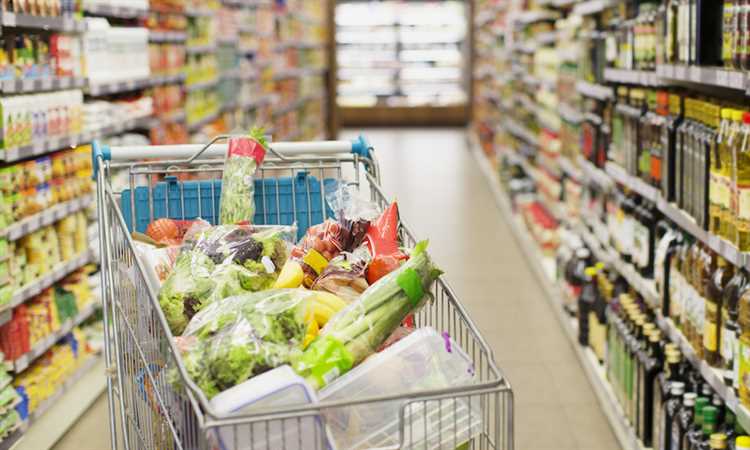
Here are some tips to make the most out of your bulk shopping experience:
1. Bring your own containers: Before heading to the store, gather some reusable containers such as glass jars, cloth bags, or stainless steel containers. These containers should be lightweight and easy to carry. Make sure to weigh them before filling them up, so you don’t pay for the weight of the container.
2. Plan your meals: To avoid overbuying and wasting food, plan your meals in advance. Make a shopping list of the items you need in bulk and stick to it. This way, you’ll only buy what you truly need, reducing food waste.
Shopping in bulk is an eco-friendly way to help reduce plastic waste and save money. By making small changes to your shopping habits, you can make a big difference in protecting the planet.
Reduce Single-Use Plastic
Single-use plastic items are a major contributor to pollution and environmental damage. By reducing our consumption of these items, we can make a significant positive impact on the planet. Here are some tips to help you reduce your use of single-use plastic when grocery shopping:
1. Bring your own reusable bags
Instead of using plastic bags provided by the store, bring your own reusable bags. Keep a few reusable bags in your car or purse so that you always have them handy when you need to go grocery shopping.
2. Say no to plastic produce bags
When selecting fruits and vegetables, avoid using the plastic bags provided in the produce section. Instead, bring your own reusable produce bags or simply place the items directly in your cart. Most fruits and vegetables do not need individual wrapping.
3. Choose products with minimal packaging
Opt for products that have minimal or no packaging. Avoid buying items that are excessively packaged in plastic, such as individually wrapped snacks or single-serving products. Look for bulk options or products with eco-friendly packaging.
4. Use refillable containers
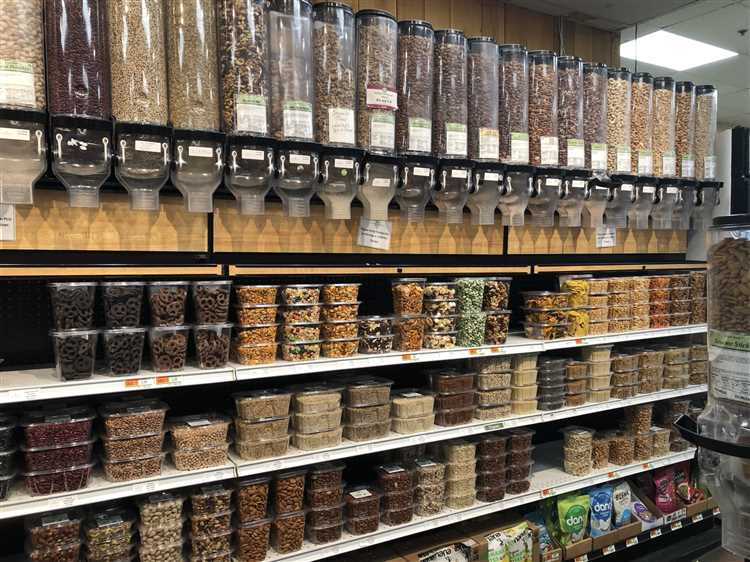
Instead of buying items like cleaning supplies or personal care products in single-use plastic containers, consider using refillable containers. Many stores now offer bulk sections where you can bring your own containers and refill them with the desired quantity of the product.
5. Avoid buying bottled water
Plastic water bottles are one of the biggest culprits when it comes to single-use plastic waste. Instead of buying bottled water, invest in a reusable water bottle and fill it up with tap water or filtered water at home. This simple change can save hundreds of plastic bottles per year.
- Bring your own reusable bags
- Say no to plastic produce bags
- Choose products with minimal packaging
- Use refillable containers
- Avoid buying bottled water
By implementing these tips, you can significantly reduce your consumption of single-use plastic when grocery shopping. Small changes like these can make a big difference in protecting our planet for future generations.
Question-answer:
Why is it important to avoid plastic in the grocery store?
There are several reasons why it is important to avoid plastic in the grocery store. Firstly, plastic is non-biodegradable and can take hundreds of years to decompose, leading to environmental pollution. Additionally, the production of plastic requires the use of fossil fuels, contributing to climate change. Plastic waste also poses a threat to wildlife, as animals can mistake it for food and become entangled in it. By avoiding plastic, we can reduce our environmental footprint and protect the planet.
What are some alternatives to plastic in the grocery store?
There are many alternatives to plastic in the grocery store. One option is to bring your own reusable bags instead of using plastic bags provided by the store. You can also use reusable produce bags for fruits and vegetables instead of the plastic ones. Another alternative is to choose products that are packaged in glass, metal, or paper instead of plastic. You can also opt for buying in bulk to reduce packaging waste. By making these small changes, you can significantly reduce your plastic consumption.
Are there any benefits to avoiding plastic in the grocery store?
Absolutely! Avoiding plastic in the grocery store has numerous benefits. Firstly, it helps reduce plastic pollution, which is a major environmental issue. By choosing alternative materials, you can contribute to cleaner oceans, rivers, and landfills. Secondly, avoiding plastic promotes sustainable living and reduces our reliance on fossil fuels. Additionally, it can save you money in the long run, as reusable bags and containers are more cost-effective than regularly buying plastic ones. Overall, avoiding plastic in the grocery store is a win-win situation for both the environment and your wallet.
What are some tips for reducing plastic use in the grocery store?
There are several tips for reducing plastic use in the grocery store. First and foremost, bring your own reusable bags and produce bags. This simple habit can significantly reduce the number of plastic bags you consume. Additionally, opt for products with minimal packaging or choose items packaged in glass, metal, or paper instead of plastic. Buying in bulk and using your own containers is another great way to reduce plastic waste. Lastly, consider making your own homemade products, such as condiments, instead of buying them in plastic packaging. Small changes like these can make a big difference.
What challenges might people face when trying to avoid plastic in the grocery store?
While avoiding plastic in the grocery store is a noble goal, there can be some challenges along the way. One challenge is the convenience factor. Plastic packaging is often used for its easy handling and portability. Finding alternatives may require more effort and planning, such as bringing your own containers for bulk items or searching for products with minimal packaging. Another challenge is the availability of plastic-free options. Some items may only be offered in plastic packaging, making it difficult to completely eliminate plastic from your grocery shopping. However, with perseverance and creativity, it is possible to overcome these challenges and reduce plastic consumption.
Why is it important to avoid plastic in the grocery store?
Avoiding plastic in the grocery store is important because plastic is harmful to the environment. It is not biodegradable and can take hundreds of years to decompose. When plastic ends up in landfills or in the ocean, it can release harmful chemicals and pollutants into the environment, causing harm to wildlife and ecosystems. By avoiding plastic, we can reduce our impact on the environment and help protect the planet.
What are some alternatives to plastic bags in the grocery store?
There are several alternatives to plastic bags that you can use in the grocery store. One option is to bring your own reusable cloth or canvas bags. These bags are durable, can be used multiple times, and can carry heavy loads. Another alternative is to use paper bags, although it is important to note that they are not as strong as reusable bags and may not be suitable for carrying heavier items. Additionally, some grocery stores offer the option to purchase reusable plastic bags made from recycled materials, which can be a more sustainable alternative to traditional plastic bags.